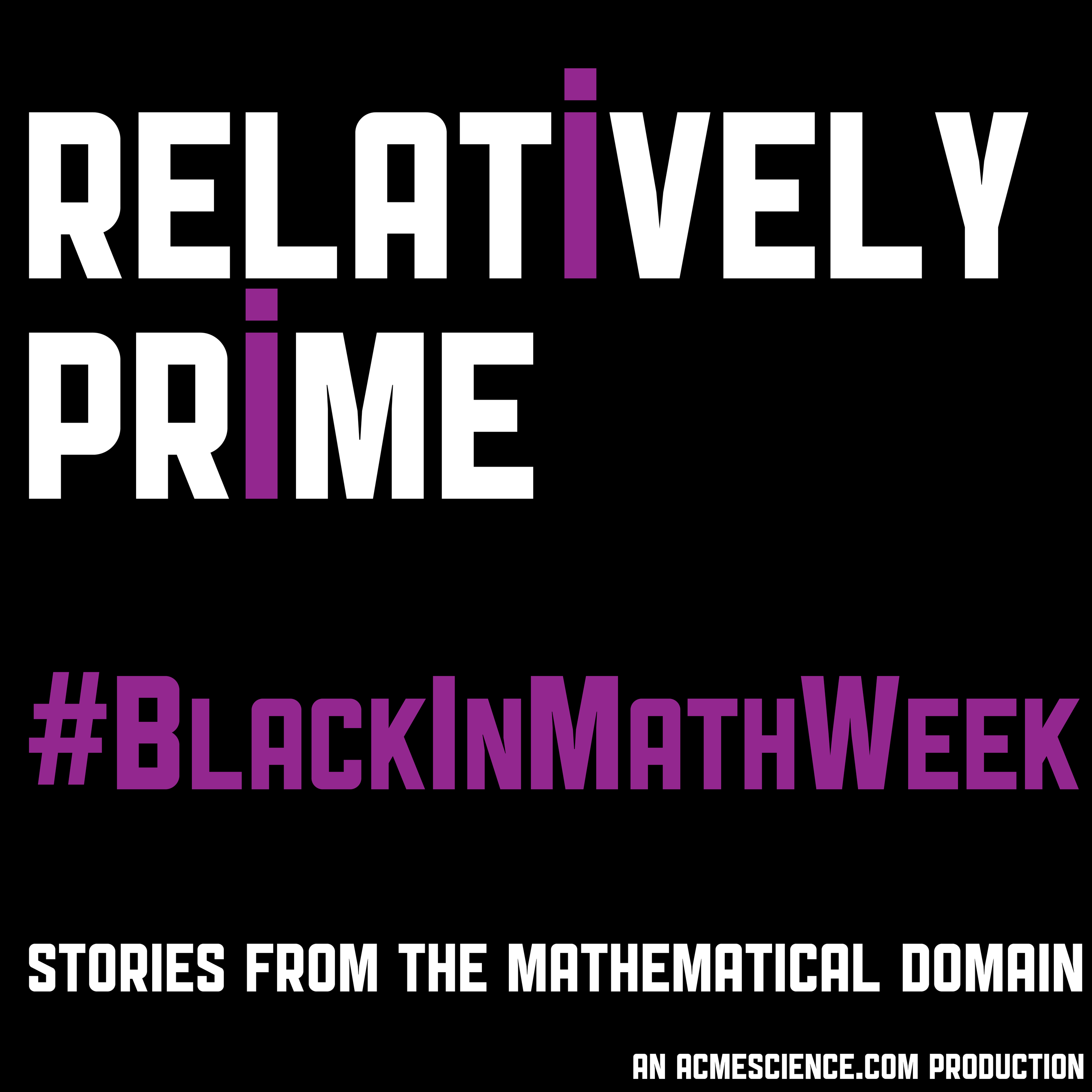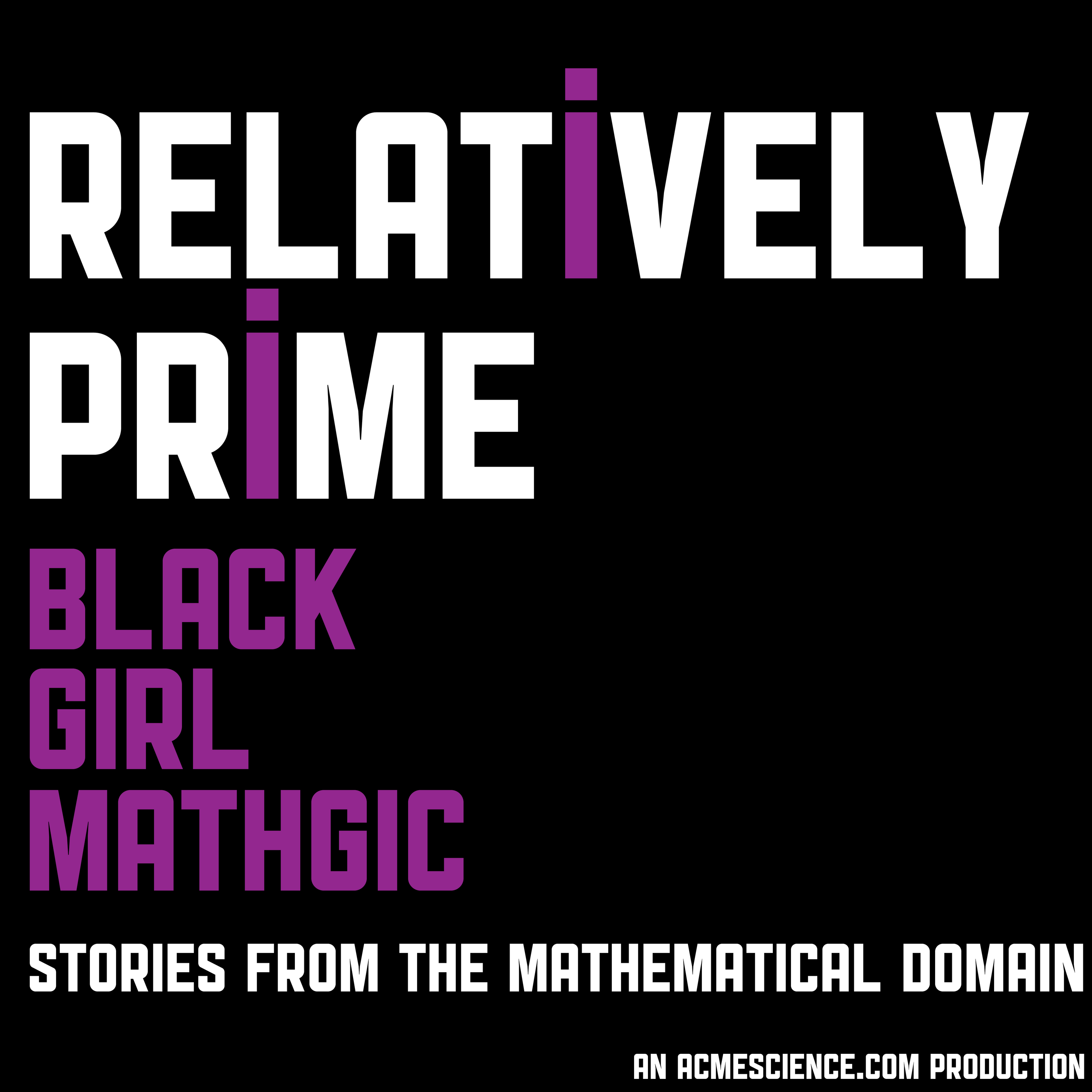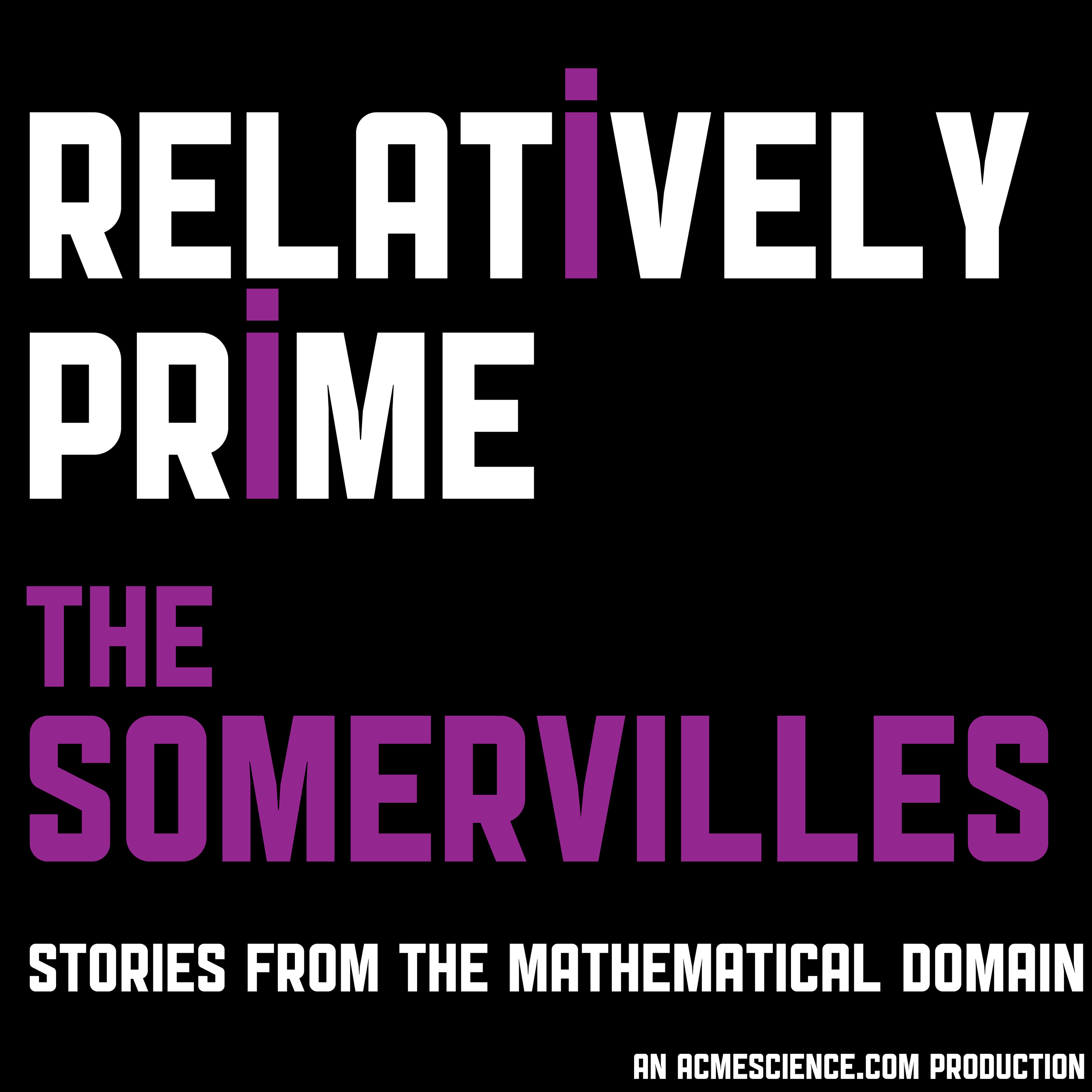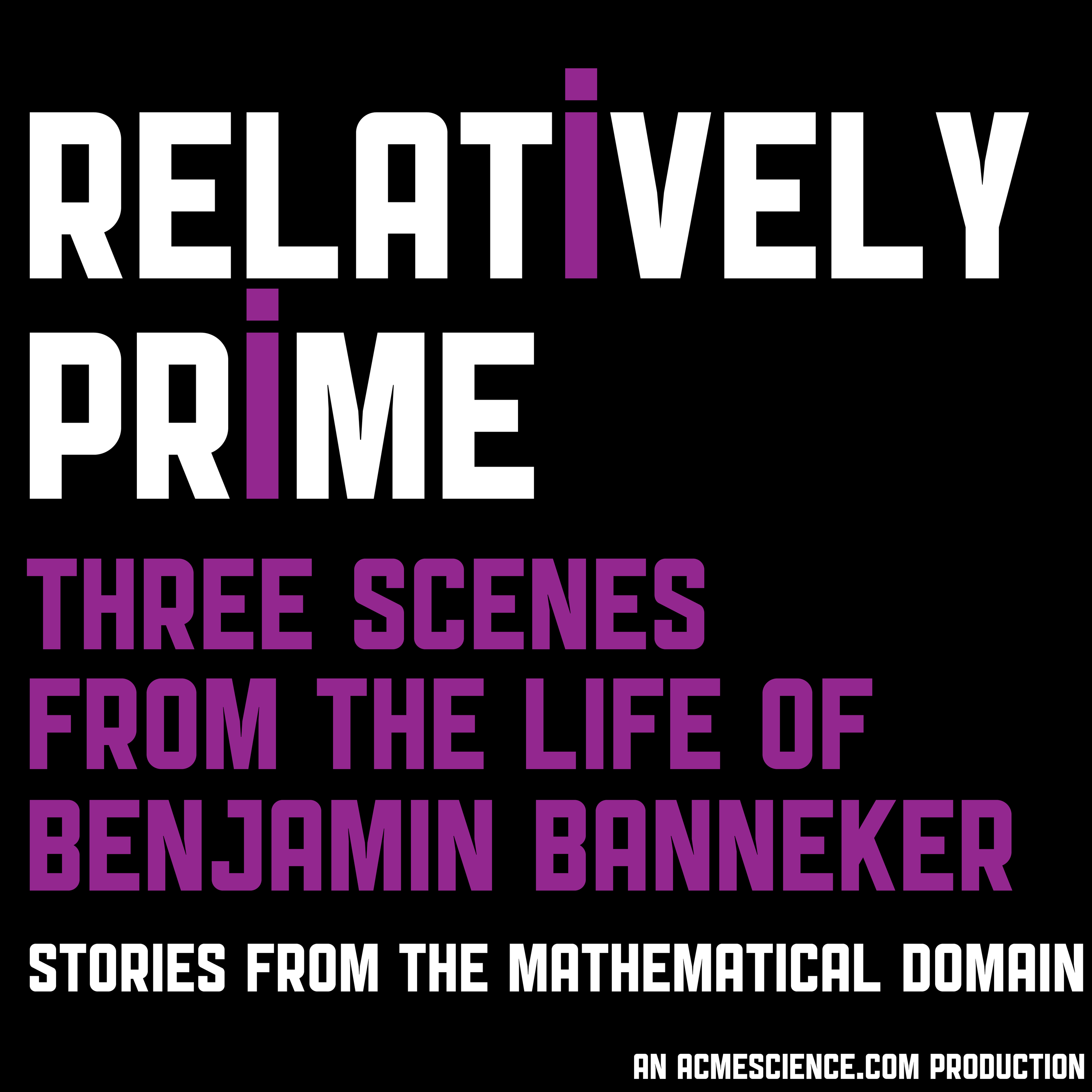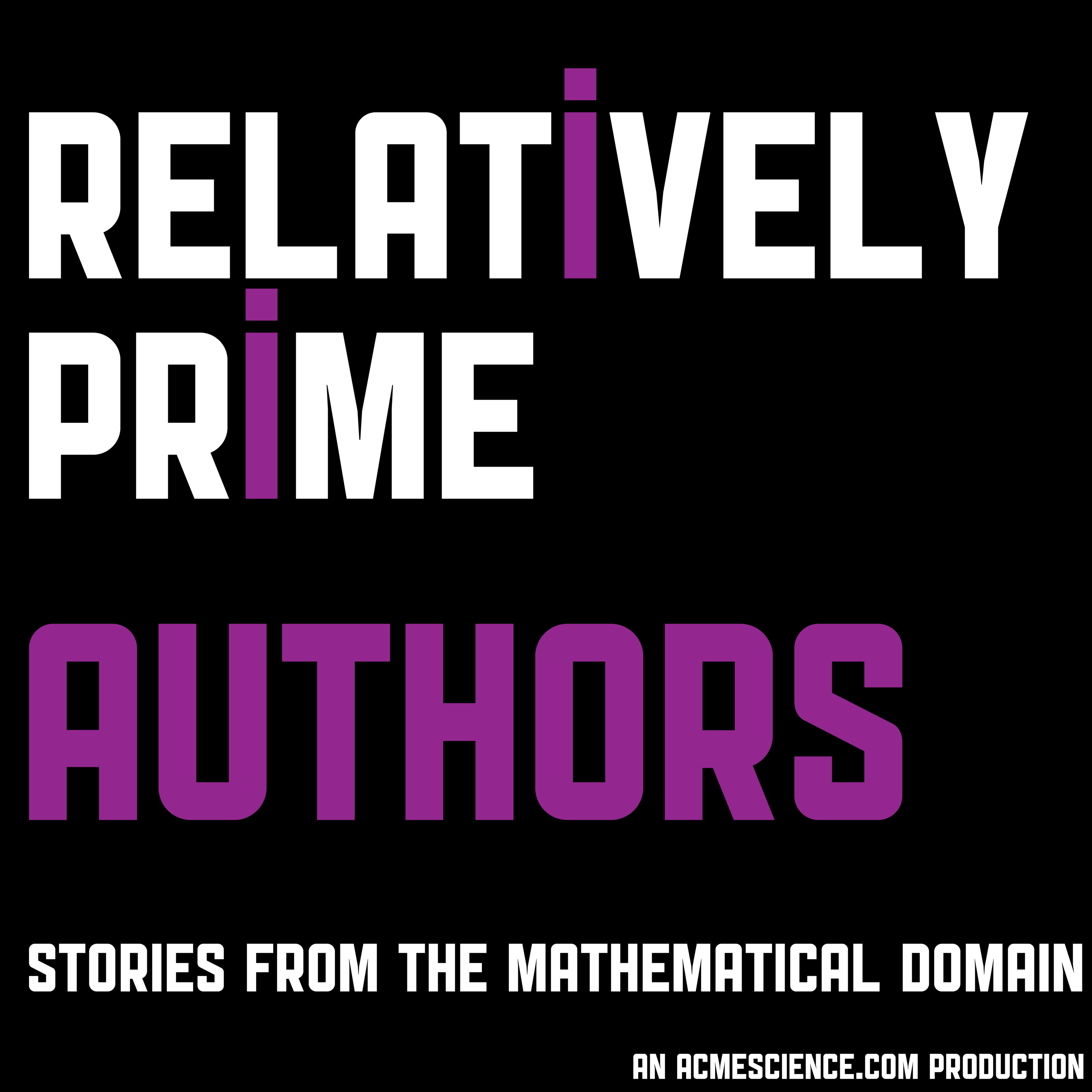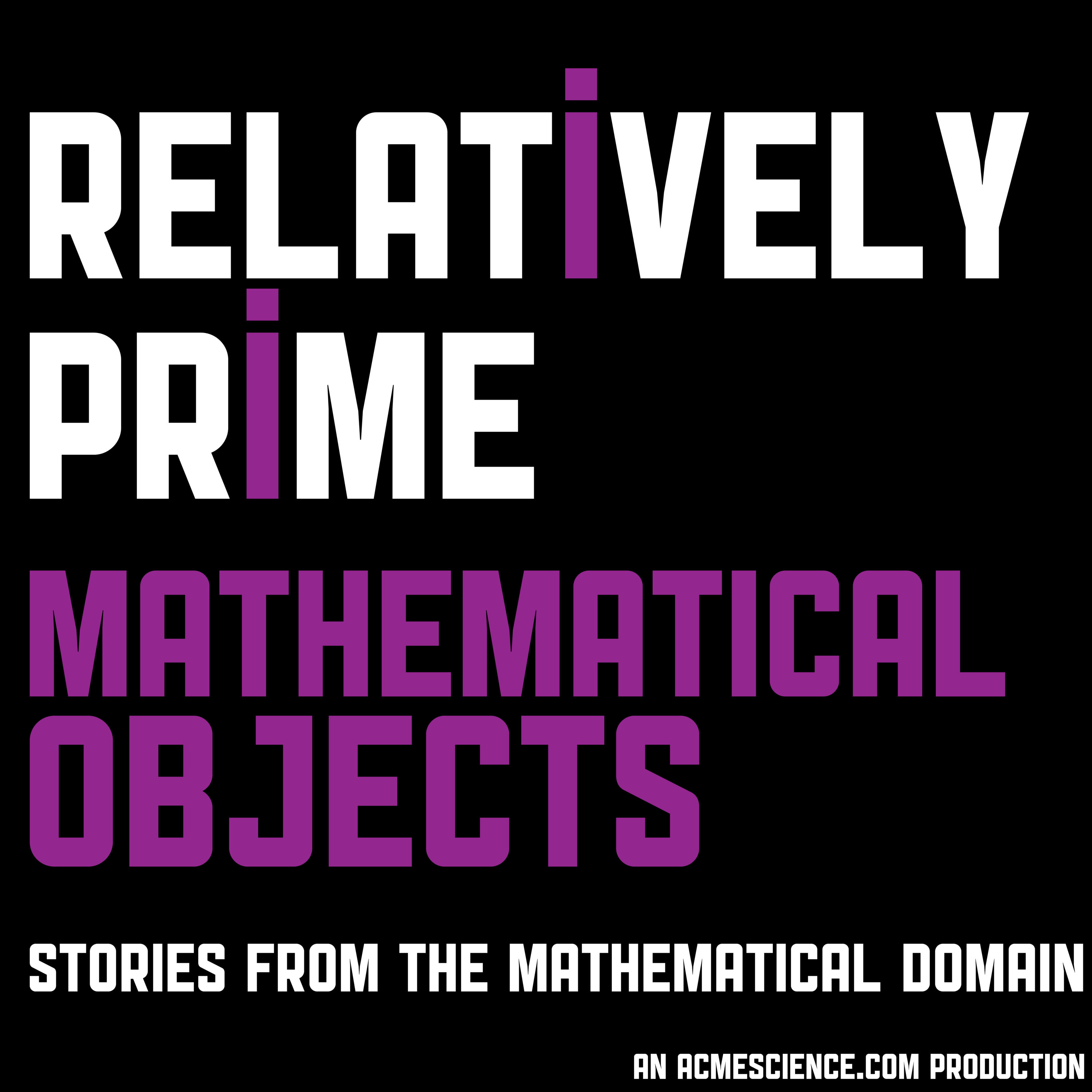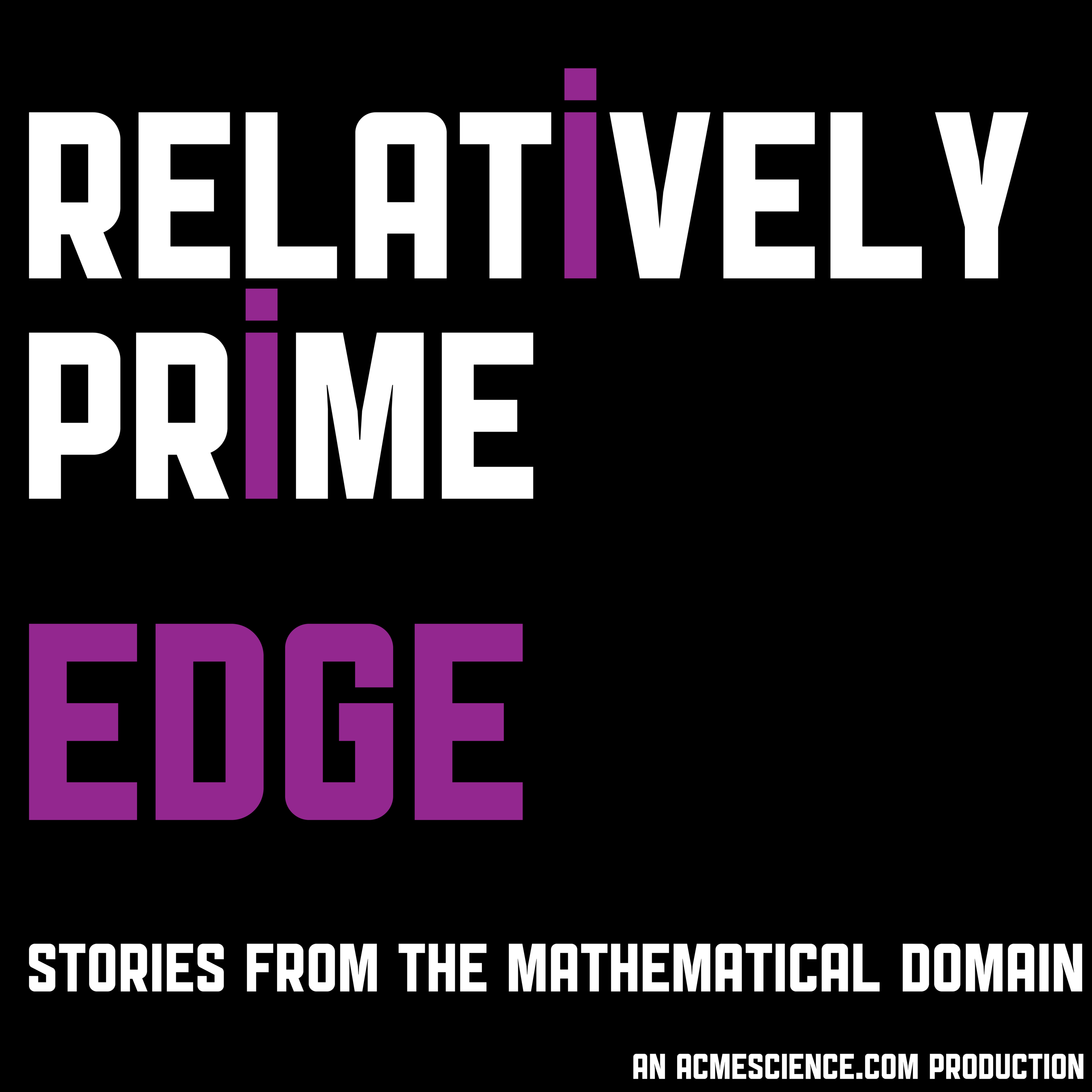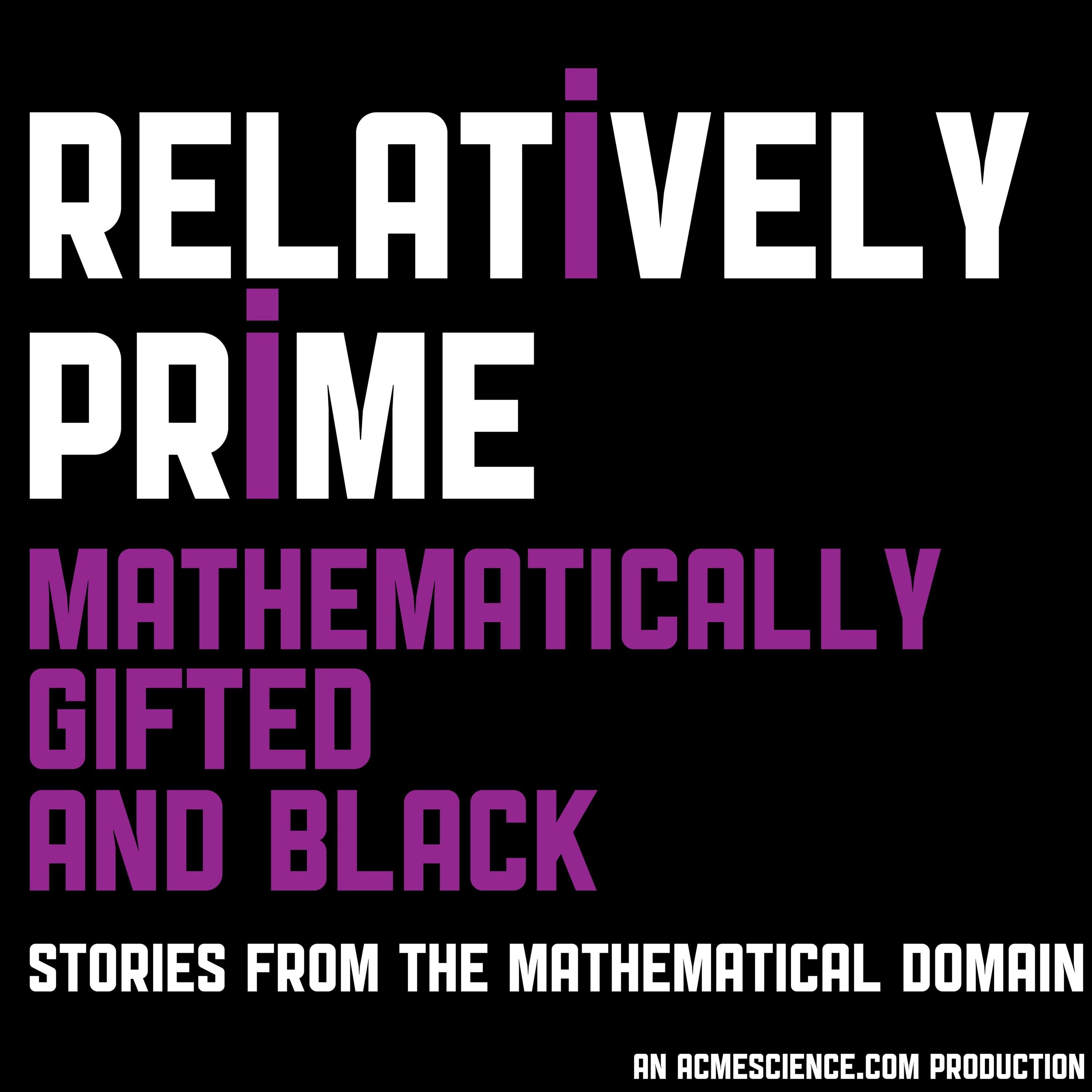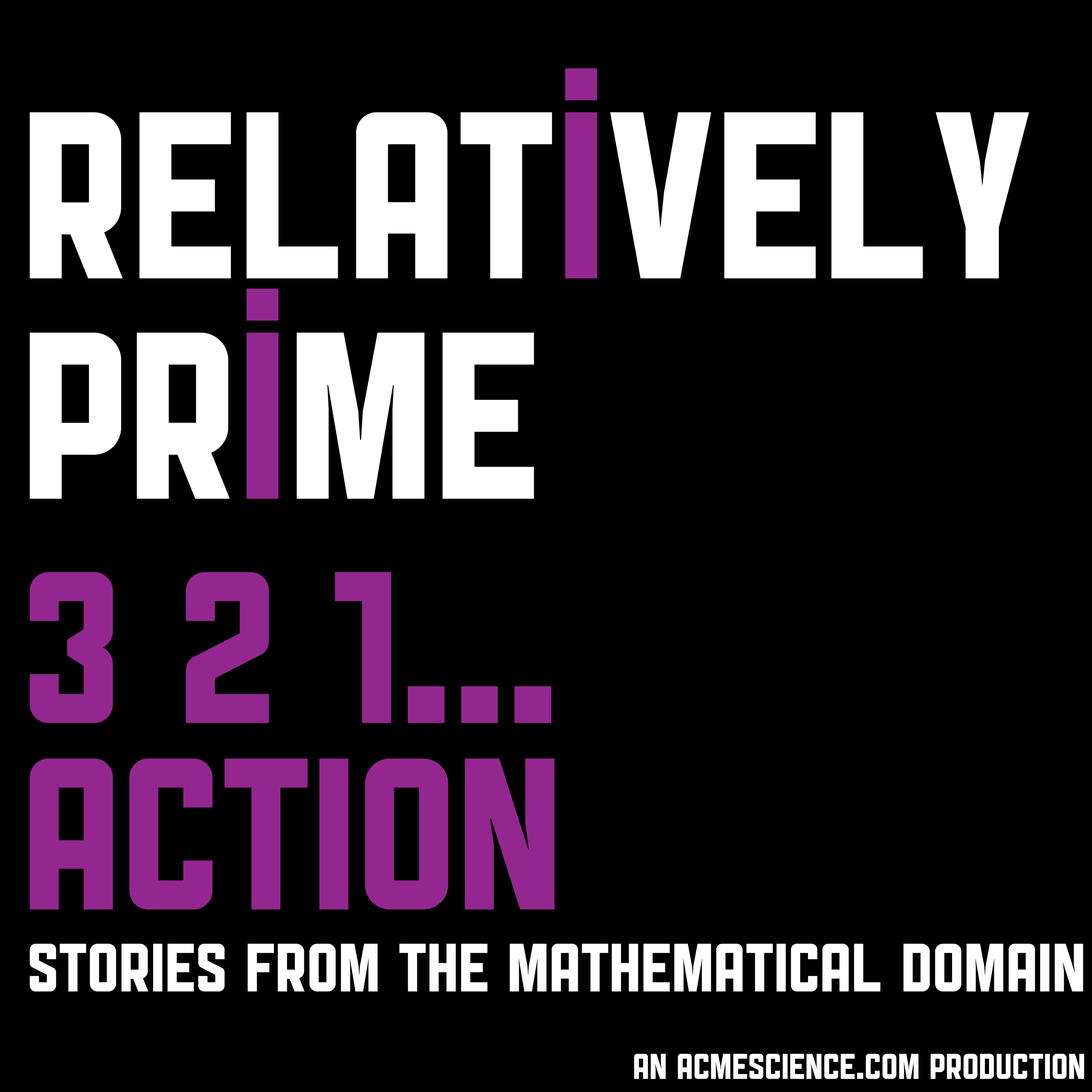#BlackInMathWeek
Description
 </figure>
</figure>On this episode of Relatively Prime, Michole Enjoli and Noelle Sawyer take over for Black in Math Week. They talk to Brea Ratliff and José Vilson, two Black math educators, and discuss what it’s like to be Black in math, what they would say to people making common false statements about Black students in math, and better hopes and dreams for Black students.
Black in Math week is November 8th – 13th, 2020! It’s a week on Twitter to celebrate community among and uplift Black mathematicians. Check us out @BlackInMath for updates!
Brea is currently pursuing a PhD at Auburn University in Math Education. She is the founder of and CEO Me to the Power of Three and is a past president of the Benjamin Banneker association.
José is located in New York City and is the founder and executive director of EDUcolor. He is currently pursuing a Ph.D. at Teachers College at Columbia University in Sociology and Education.
We talk a bit about Afrofuturism in this episode. If you’re interested in checking out more on Afrofuturism, try SpaceBox, a STEM escape room to save astronauts from a virus, and this special minizine from Bitten Magazine!
Music:
Kirshmusic
Transcript:
Michole:
This is Relatively rime Black in Math Week in the mathematical domain. I’m one of your host, Michole Enjoli.
Noelle:
And I’m Noelle Sawyer
Noelle:
We’e here as a part of Black and Math Week to talk to some Black math educators. I’m actually an assistant professor of math at Southwestern university in Georgetown, Texas. So I, myself, am a math educator, I’m from The Bahamas and I’ve also got a few teachers in my family line there. So education has got a special place in my heart.
Michole:
And again, Michole Enjoli, I’m a mathematician, educator ,and STEM edutainment producer. I originally hailed from Atlanta, Georgia, and Seattle, Washington, but now I’m in Ann Arbor working on my PhD in math education. I also have a lot of educators in my family and I always like to make it be known that I’m an educator before mathematician.
Noelle:
I talked to Bria Ratliff for this podcast and I asked her how she introduces herself to strangers. If you’re sitting next to a stranger in the before times, right. When we did that and someone and someone asked you, like, what do you do? How do you answer them?
Brea:
Um , generally I say that I’m a mathematics educator and can we go back for a minute? Cause the before times, and the Hunger Games was reference just really gives me life right now. (laughs) Um, that that pretty much is mathematics or STEM educator, I think is probably the best collective term for all the things that I do. And I’m involved with. I have been an administrator and a coach and currently delving deeper into research and have been a research coordinator and whatnot for a while. And I have my own business also, I’m consulting on mathematics and STEM, but at the heart of what I do, I am a mathematics educator.
Noelle:
Brea is in the math education doctoral program at Auburn university. Right now. She’s also the founder of Me to the Power of Three, which specializes in curriculum development and designing educational programs. They’ve done work for the Dallas Cowboys stadium and she’s a past president of the Benjamin Banneker association.
Michole:
And I took the time to talk to José Bilson and I also asked him, because he lives in New York city. If he’s ever on the train or walking down the street, how does he introduce himself as strangers?
José:
Usually I tell them my name is José Vilson. I’ve been, before this year I was a math teacher for the better part of 15 years. In addition, I am also the executive director of EduColor an organization dedicated to race, class and education, but also as a proud father, husband, and any number of other roles that I take on a daily basis.
Michole:
And Noelle, let me tell you, José is a dope math educator, but he’s also the founder and executive director of EduColor color. And he’s currently pursuing a PhD at Teacher’s college at Columbia university in sociology and education. But before he was doing his PhD, I thought he was already a doctor because we met a couple of years ago at the CIME conference at MSRI. So CIME is a conference in mathematics education and MSRI is a mathematical sciences research Institute. And for anyone who’s listening, I’ll say this again at the end, please follow José on Twitter. You will be enlightened every single moment,
Brea:
Even though Brea and José both have these really cool jobs and backgrounds, I was kind of curious
Michole:
What were you’re curious about?
Brea:
Whether or not people still make the statement that all math people are tired of hearing. Do people still respond and say, Oh, I hate math. (Laughing)
Brea:
I’m sure you hear that all the time. It’s, it’s, it’s still such a pervasive thought across, um, society. So I think we really have to do better about the messaging with that. Admittedly though, there is, there is some eliteism that does come with saying that you are a math person and I think we’d be lying if we didn’t recognize that. But at the same time, if we’re wanting more people to come into the mathematics space, then we have to really find ways to help them understand. There is really no such thing as a math person. That’s that is false.
Michole:
You know, I’ve always been a solidarity with folks who hate math. Like even though I know I personally have done well, well, I can only say that up until undergrad, but for the most part I’ve done well in math. It’s really reasonable to know why people have hard feelings around it. Now I think about a lot of the violence that can happen in a math classroom, especially, especially for Black students in America. You know, their bodies are often looked at in similar ways that we see on the streets. We think about police reform and police brutality that’s happening to Black people.
Noelle:
So when we talk about policing Black bodies in the classroom, like, are we also talking about the actual police here.
Michole:
In some instances we are. And if you were to do a quick YouTube search, which I honestly hate to put this out here to even have to put anyone to witnesses this, but you can find several videos where there are police officers, throwing Black students to the ground in a math classroom, in a math classroom. Why the police even there in the first place in these Black communities, and not even always in Black communities, you know, and we see that happening, but there’s also things happening in a way that we’re teaching math education. That’s very behavioral and policing the way that Black students show up and do mathematics in the classroom. There’s a study that I’ve read before in my own research that shows, the second grade teachers were significantly more likely to judge their Black female students’ math abilities solely on their behavior. Second grade Noelle.
Noelle:
Wow
Michole:
they said the students were getting up moving or whatever, and they’re not answering their questions all the time. We talking about second graders who were always running around, having to use the bathroom every 10 minutes. They were being policed way more in that way than on their knowledge. So me and José talked about this in relation to his work that he does with EduColor.
José:
In the service of Black children. I think that’s pretty much where we center so much of our work because we work directly with them and specifically talking about how anti-Blackness shows up even amongst people of color, generally, even amongst Black folks, right? The idea that for example, our pedagogies have to be super regimented and make sure everybody like, sits in rows in aisles to address those kids, make sure that they like follow whatever that, that like a champion nonsense is. And I know the name of it. I just rather not validate it, but I think, I think it’s just so fascinating because like so many of the schools that educators of color are being pushed towards now are some of the same schools that their business model is based off segregation. It’s very much like we will serve your children. We will give them resources through our hedge fund managers. But that in turn you have to sacrifice their liberties. You have to sacrifice the idea that they deserve to be able to be in control of their hands and control their eyes and control of their own voices. Like they have to sacrifice those levels of control. And it’s not to say that public schools don’t often have similar situations, but it is to say that the things that you can get away with when it’s not as accountable to the public,

